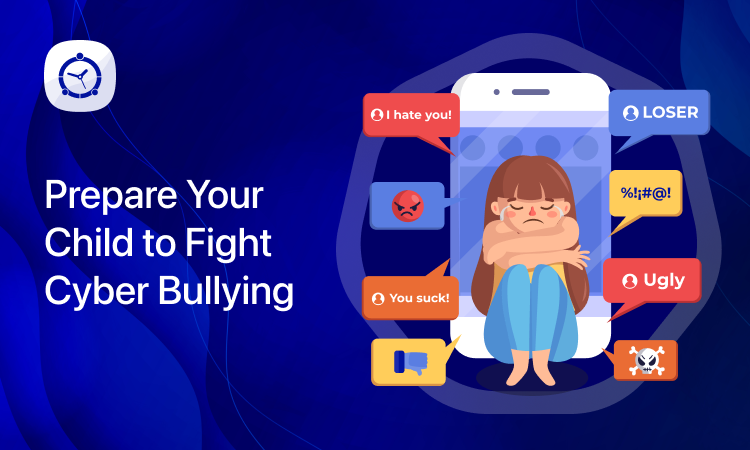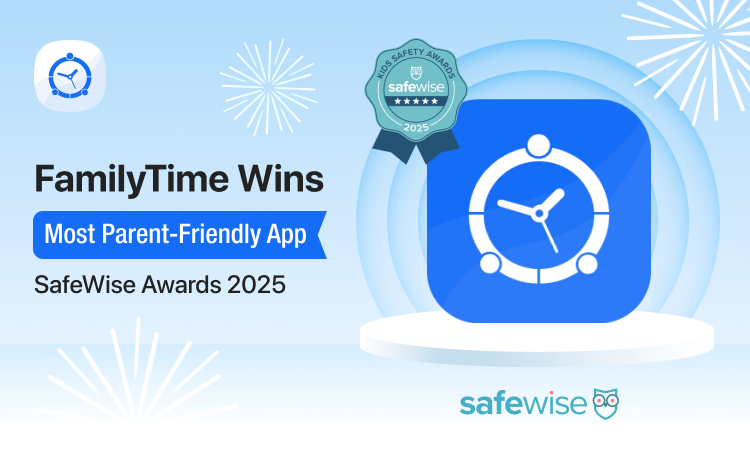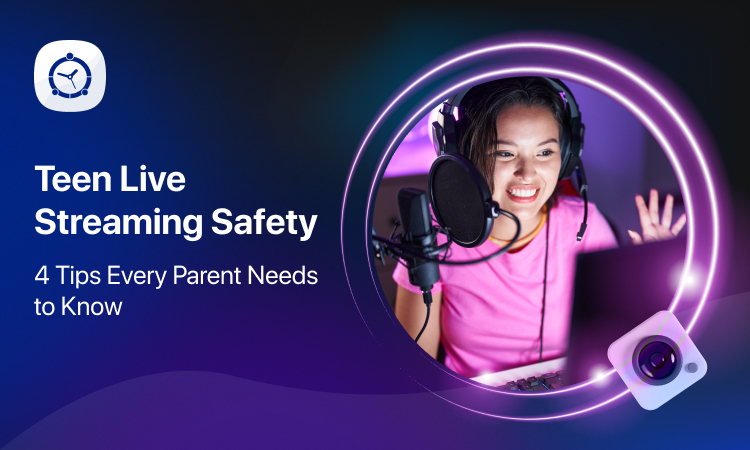Bullying is not new or something parents today are unaware of. The only difference is the transformation in bullying practices. As our communication and interaction are digital, the problems are going digital, too. Previously, bullies were at school and social spaces; now, they are everywhere through digital media and devices.
Cyberbullying Is somehow the most common and massive threat to kids and youth. Even the elders are not safe from the threat, but kids are the most vulnerable. At the worst of all, it’s present in the most minimalist to drastic ways like passing comments, disliking posts, calling names, stalking, bashing, canceling, and more.
When your kid, whether a pre-teen or a teen, is engaging with others online, it’s a must that they will encounter these problems. So, it’s better to act and work around their safety protocols. It’s time to prepare them to fight cyberbullying and be safe online.
The Rising Figures of Cyber Bullying
In today’s digital age, cyberbullying is becoming increasingly prevalent. According to recent studies, 59% of children and adolescents report being victims of cyberbullying at some point in their lives. The anonymity and accessibility provided by the internet make it easier for bullies to target their victims, often with devastating consequences.
Cyberbullying can take various forms, including harassment, spreading rumors, sharing private information without consent, and creating fake accounts to impersonate or intimidate others. With the rise of social media platforms, online gaming communities, and messaging apps, bullies have more avenues than ever to torment their targets.
The consequences of cyberbullying can be severe, leading to emotional distress, social isolation, academic problems, and even physical harm in some cases. Parents need to recognize the signs of cyberbullying and take proactive steps to protect their children from this harmful behavior.
Signs that your child’s being bullied
Recognizing the signs of cyberbullying is crucial for parents to intervene and support their children effectively. Here are some common indicators that your child may be experiencing cyberbullying:
Changes in Behavior
Watch for sudden changes in your child’s behavior, such as becoming withdrawn, anxious, or depressed. They may also exhibit signs of distress, such as mood swings, irritability, or tearfulness.
Avoidance of Technology
If your child avoids using their devices or social media accounts altogether, it could be a sign that they are trying to escape online harassment. They may also become secretive about online activities or appear nervous when using their devices.
Physical Symptoms
Some children may experience physical symptoms as a result of cyberbullying, such as headaches, stomachaches, or trouble sleeping. These symptoms may indicate that your child is experiencing significant stress or anxiety related to online harassment.
Changes in Academic Performance
Cyberbullying can have a profound impact on a child’s academic performance. If your child’s grades suddenly decline or they show a lack of interest in school, it may be a sign that they are struggling with online harassment.
Social Withdrawal
Cyberbullying can lead to social isolation, as victims may feel ashamed or embarrassed about their experiences. If your child suddenly withdraws from social activities or loses interest in spending time with friends, it could be a red flag for cyberbullying.
React responsibly when your child is a victim.
If your child confides in you about being cyberbullied, it’s essential to respond promptly and supportively. At this time, being a parent, you have to hold onto your nerves and act responsibly. Remember, being sensitive and mature when dealing with these issues is essential to ensure your child gets the right attention at the right time. Here are some steps you can take to address the situation responsibly:
Keep Yourself Calm
As a parent, it’s natural to feel upset or angry upon learning that your child is being bullied. However, remaining calm and composed is essential when discussing the issue with your child. Your emotional stability will help reassure them and facilitate open communication.
Listen to Them
Give your child the opportunity to express their feelings and share their experiences without hesitation. Be available physically, mentally, and emotionally to listen to everything they have to share and validate their emotions. Let them know that you believe them and are there to support them unconditionally.
Comfort and Support
Offer your child comfort and reassurance during this challenging time. Let them know that they are not alone and that you are committed to helping them overcome the situation. Please encourage them to lean on trusted friends, family members, or school counselors for additional support.
Do Not Hold Their Devices
While it may be tempting to confiscate your child’s devices as a means of protecting them, doing so can further isolate them from their peers and exacerbate their distress. Instead, focus on addressing the underlying issue of cyberbullying through open communication and proactive intervention.
Never Assume Anything – Get the Facts
Avoid making assumptions or jumping to conclusions based on limited information. Take the time to gather facts and evidence related to the cyberbullying incident, including screenshots of offensive messages or posts.
Report to the Police at the Right Time
In cases where cyberbullying involves threats of violence, sexual harassment, or other criminal behavior, it may be necessary to involve law enforcement. Keep detailed records of the cyberbullying incidents and report them to the appropriate authorities if needed.
Empower your child in fighting & Reporting Cyber Bullying
Empowering your child to stand up against cyberbullying is crucial for their emotional well-being and resilience. In the current digital challenges, making them understand the threat and know the right tactics to deal with it is essential. Here are some strategies you can use to support and empower them:
Ask Them Not to Respond or Engage with Bullies
Encourage your child not to retaliate or engage with their bullies online. Responding to cyberbullying can often escalate the situation and lead to further harassment. Instead, guide them to block or mute the individuals involved and focus on their well-being.
Provide Guidance to Evidence Collection
Teach your child how to collect evidence of cyberbullying, such as screenshots of offensive messages, posts, or comments. Remind them to save any threatening or harassing communications they receive online, as this evidence may be useful when reporting the incident to platform moderators or school administrators.
Review Community Guidelines with Them
Familiarize your child with the community guidelines and terms of service of the online platforms they use regularly. Help them understand what constitutes cyberbullying behavior and what actions they can take to address it, such as reporting abusive content or blocking malicious users.
Research Reporting Process
Research the reporting process for the social media platforms, gaming communities, or messaging apps your child uses. Walk them through the steps of reporting cyberbullying incidents, including how to submit detailed reports and follow up on their status.
Supervise When They Report
Offer your support and supervision as your child reports instances of cyberbullying to platform moderators or school authorities. Help them draft clear and concise reports that include relevant evidence and details about the harassment they have experienced. Follow up with the appropriate authorities to address the incident promptly and effectively.
Always on the Follow-Up!
Stay actively involved in the resolution process and follow up with your child regularly to monitor their well-being and progress. Be available for your kids to speak with you or share what they are experiencing. Specifically, have an active ear when encountering any further cyberbullying or harassment.
Avoiding Cyber Bullying in the Future
Preventing cyberbullying requires a proactive approach emphasizing education, communication, and digital literacy. Here are some strategies you can use to help your child avoid cyberbullying in the future:
Empower Kids with Anti-Bully Tools Online
Teach your child to use privacy settings, blocking features, and reporting tools available on social media platforms and gaming communities. Encourage them to customize their privacy settings to control who can view their profile, contact them, or interact with their content online.
Encourage Them to Share Everything Strange Happening
Foster open communication with your child and encourage them to share any strange, uncomfortable, or suspicious interactions they experience online. Create a safe and non-judgmental environment for your child to discuss their online experience. Remember, when seeking support and guidance, they have to be in a comfortable and trusted zone.
Build Their Confidence About Social Interactions Online
Help your child develop confidence and assertiveness in online interactions by emphasizing the importance of setting boundaries, asserting their rights, and advocating for themselves. Teach them to recognize and respond assertively to inappropriate or abusive behavior online, such as cyberbullying or online harassment.
Educate Them About Safe Online Behaviors
Educate your child about safe online behaviors, as acting right helps them to avoid many complications. When your kids know how to behave right, they will save themselves from undue threats or issues. Aware them to practice a few acts such as:
- Protecting their personal information
- Stay conscious when responding to friend requests or messages from strangers
- Avoiding sharing intimate or sensitive content online
- Make use of privacy settings to avoid leaking information
Teach them to think critically about the content they encounter online and to question the credibility and intentions of unknown individuals or sources.
Protect Their Devices with FamilyTime
Consider using parental control apps like FamilyTime to monitor and manage your child’s online activity, screen time, and device usage. FamilyTime allows you to set digital boundaries, block inappropriate content, and track your child’s location to ensure their safety and well-being online. It empowers you and your child to deal with bullies effectively and move smartly.
Wrap Up!
Cyberbullying is a serious issue that requires a multifaceted approach involving education, communication, and proactive intervention. By staying informed, fostering open communication with your child, and empowering them with the tools and knowledge to protect themselves online, you can help prevent cyberbullying and create a safer digital environment for all children. Together, we can work towards combating cyberbullying and promoting kindness, respect, and empathy online.








